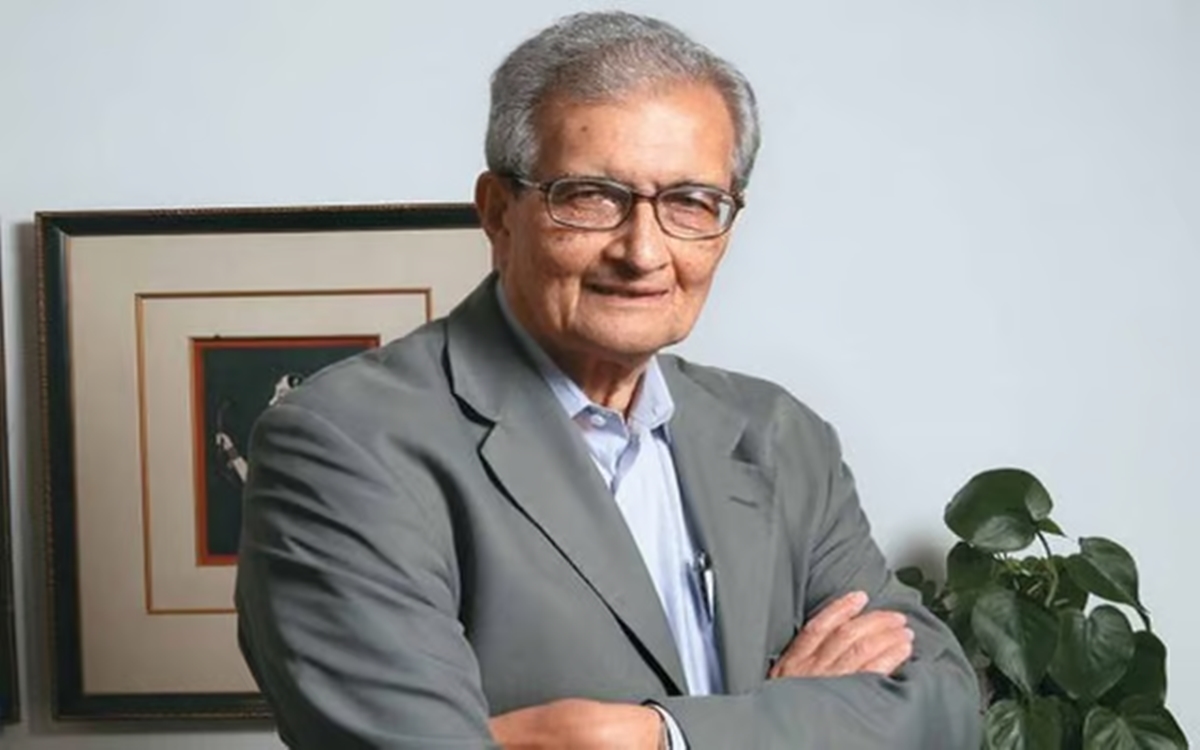Nobel laureate and economist Amartya Sen criticises that the recent Lok Sabha election results show India is not a ‘Hindu Rashtra’. In a dig at the BJP-led NDA government, The economist said the building of the Ram Temple with so much money was an attempt to portray India as a ‘Hindu Rashtra’, a concept that is considered, should not have happened in the country of Mahatma Gandhi, Rabindranath Tagore, and Netaji Subhas Chandra Bose. It shows an attempt to neglect India’s genuine identity, and it must change, Amarta Sen responded to National Media.
In the recent general elections, the Bharatiya Janata Party (BJP) secured 240 seats and became the largest party, yet it fell short of the majority of 272 seats in the 543-seat Lok Sabha and tasted defeat in Ram Temple situated constituency Faizadabad. Awadhesh Prasad Singh, the candidate from the Samajwadi Party, emerged victorious in Faizabad by defeating Lallu Singh, the Member of Parliament from the Bharatiya Janata Party (BJP).
The BJP not only faced defeat in Faizabad but also suffered losses in five out of the nine seats in the Ayodhya region of Uttar Pradesh. The other four seats where the BJP faced defeat in the region are Sultanpur, Basti, Ambedkar Nagar, and Shrawasti. Following these defeats of the saffron party, Sen argues that the defeat of the BJP in the Faizabad Lok Sabha constituency signifies disapproval of the party’s attempts to establish a Hindu-focused identity for India.
He asserted the necessity of keeping political open-mindedness in India, a secular country with a secular Constitution while rejecting the idea of transforming India into a “Hindu Rashtra”. The economist reflected on his childhood experiences during British rule when individuals were imprisoned without undergoing a fair trial. He held both the Congress and the current BJP government accountable for the circumstances that transpired during that period.
Image source: X
“With each election, we anticipate a transformation. However, certain aspects that occurred previously during the BJP-led central government, such as arbitrary detentions and the widening wealth disparity, persist. This must come to an end,” he said. The economist shares views about his childhood when India was under British rule, where individuals were imprisoned without fair trials. “Even my uncles and cousins were detained without trial. We had hoped for India to be liberated from this. The Congress party is also accountable for the continuation of this issue. They failed to rectify it… Nevertheless, it is more prevalent under the current government,” he further added.
Who is Amartya Sen?
Amartya Sen, an Indian economist born on November 3, 1933, in Santiniketan, India, was honoured with the 1998 Nobel Prize in Economic Sciences for his significant contributions to welfare economics and social choice theory. His profound interest in the challenges faced by the most impoverished members of society has made him renowned. Sen’s notable research on the causes of famine has resulted in the development of practical solutions to prevent or mitigate the impact of actual or perceived food shortages.
In his influential book, “Poverty and Famines: An Essay on Entitlement and Deprivation” published in 1981, Sen expressed that food supplies were often not substantially reduced during famines. Instead, he identified various social and economic factors such as declining wages, unemployment, rising food prices, and inadequate food distribution systems that led to starvation among specific societal groups.
Sen’s work has significantly influenced governments and international organizations in their approach to handling food crises. His perspectives have encouraged policymakers to not only focus on immediate relief efforts but also to address the issue of lost income among the poor through initiatives like public works projects. Additionally, Sen emphasizes the importance of maintaining stable food prices to ensure food security for all.



